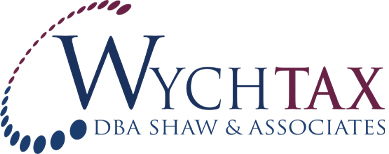The Shaw Atlas
October 2013
Welcome to The Shaw Atlas, the monthly newsletter from Shaw & Associates, CPAs & Financial Advisors. We look forward to keeping you abreast of ever-changing tax codes, providing you with money saving accounting tips and illustrating proactive strategies to help you achieve the financial life you envision.
Newsletter contents:
Helpful Tips for Meaningful Contributions
Important Due Dates
October 31, 2013- File 3rd quarter payroll taxes
Over the past 15 months Northern Colorado has experienced several significant natural disasters. In a previous newsletter we wrote an article on the tax ramifications of casualty losses. In light of the recent devastating floods, we felt it was appropriate to reprint that article.
A casualty loss can result from the damage, destruction or loss of your property from any sudden, unexpected, or unusual event such as a flood, hurricane, tornado, fire, earthquake or even volcanic eruption. A casualty does not include normal wear and tear. Generally you may deduct casualty losses relating to your home, household items and vehicles on your Federal income tax return. You may not deduct casualty losses covered by insurance unless you file a timely claim for reimbursement, and you must reduce the loss by the amount of any reimbursement.
If your property is a personal property, such as your primary residence or a vacation home, or is not completely destroyed, the amount of your casualty loss is the lesser of:
- The adjusted basis of your property, or
- The decrease in fair market value of your property as a result of the casualty.
The adjusted basis of your property is usually the original purchase price of your home plus any major improvements. The adjusted basis of household items and vehicles is generally the original cost of the item. The adjusted basis must be reduced for depreciation in the event you claimed your primary residence as a home office or rented a portion of the home.
Individuals are required to claim their casualty losses as an itemized deduction on Form 1040, Schedule A. Since the calculation is somewhat complex, I will not detail this here. However, it is important to know that there are some limitations on the amounts that can be deducted that need to be taken into consideration.
Casualty losses are generally deductible in the year the casualty occurred. However, if you have a casualty loss from a federally declared disaster you can choose to treat the loss as having occurred in the year immediately preceding the tax year in which the disaster happened, and you can deduct the loss on your return or amended return for that preceding tax year.
These rules can sometimes be confusing. If you have incurred a casualty loss, please do not hesitate to contact us to assist you in this matter.
- Check out the website www.helpcoloradonow.org to find a list of foundations, funds, and agencies accepting donations for relief work. This website is a partnership between the Colorado Division of Homeland Security and Emergency Management, and the Colorado Voluntary Organizations Active in Disaster.
- Before you donate money, make sure you are giving to a bona-fide charity, as opposed to a potential scam. Most charities that solicit contributions in Colorado are required to register with the Secretary of State’s office. Therefore, you can search their database at their Charities and Fundraisers website if you want to check out a certain organization. This is especially useful to help weed out phony organizations with names similar to well-known organizations. Or, you can call an organization and request a copy of its Form 990 (federal tax-exempt tax return), which is public knowledge and should be provided upon request.
- If you believe you have been solicited by a fraudulent charity, you can file a complaint with the Colorado Attorney General at http://www.coloradoattorneygeneral.gov/.
- The Better Business Bureau recently published details of a known scam whereby individuals in flood areas reported being contacted by telephone and offered free or reduced university education for their children because they were a victim of the Northern Colorado floods. The callers then requested the children’s Social Security numbers and other personal information to get the fund set up. Beware of anyone requesting this kind of information by phone.
- If you are donating to a national organization, verify that the funds will be used to support local efforts.
- Donations are only tax deductible if made to an 501(c)(3) organization, church, or government institution. Keep in mind that financial or material gifts to specific individuals (or to an organization on behalf of a specific individual) are not tax-deductible. This does not mean you should not help someone in need; just do it because of compassion rather than because of the tax deduction.
If you have been impacted by these storms, our thoughts are with you. Please let us know if we can do anything to help.
